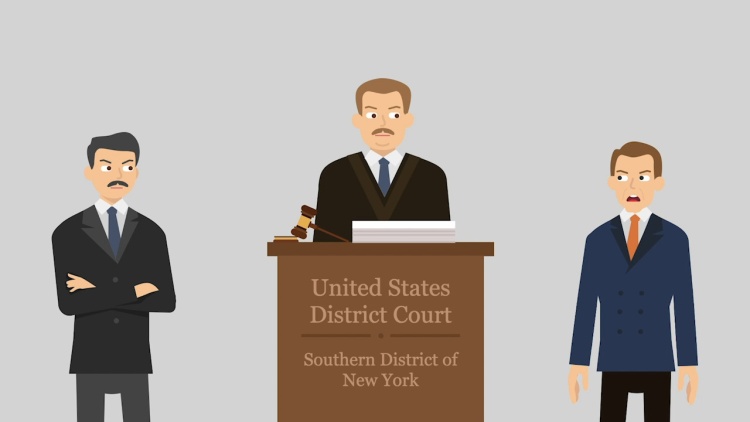T.B. Harms Co. v. Eliscu
United States Court of Appeals for the Second Circuit
339 F.2d 823 (1964)
- Written by Jamie Milne, JD
Facts
Vincent Youmans composed and copyrighted the music for four songs to be used in a movie. Youmans assigned some of his rights in the music to the movie studio but reserved other rights to himself. The movie studio hired Gus Kahn and Edward Eliscu (defendant) to write lyrics for the songs. Certain rights in the lyrics were assigned to Youmans in exchange for royalty payments. T.B. Harms Company (Harms) (plaintiff) eventually acquired Youmans’s reserved rights in the music and his assigned rights to the lyrics. When the copyrights for the music and lyrics were about to expire, Youmans’s children, Kahn’s children, and Eliscu filed copyright-renewal applications with the Copyright Office. The children assigned their rights in the renewal copyrights to Harms, but Eliscu assigned his rights to a third party. Harms alleged, however, that Eliscu had previously assigned his rights to then-existing and future renewal copyrights to Harms in exchange for royalties. Eliscu denied having made that earlier assignment. Harms sued Eliscu in federal court for declaratory relief, seeking to establish ownership of the copyright renewals. The complaint assumed that the court had federal-question jurisdiction because the dispute involved copyrights. However, the district court dismissed the complaint for lack of federal jurisdiction, concluding that the ownership dispute arose not under the Copyright Act but instead under contract law. Harms appealed.
Rule of Law
Issue
Holding and Reasoning (Friendly, J.)
What to do next…
Here's why 911,000 law students have relied on our case briefs:
- Written by law professors and practitioners, not other law students. 47,100 briefs, keyed to 997 casebooks. Top-notch customer support.
- The right amount of information, includes the facts, issues, rule of law, holding and reasoning, and any concurrences and dissents.
- Access in your classes, works on your mobile and tablet. Massive library of related video lessons and high quality multiple-choice questions.
- Easy to use, uniform format for every case brief. Written in plain English, not in legalese. Our briefs summarize and simplify; they don’t just repeat the court’s language.






